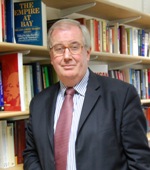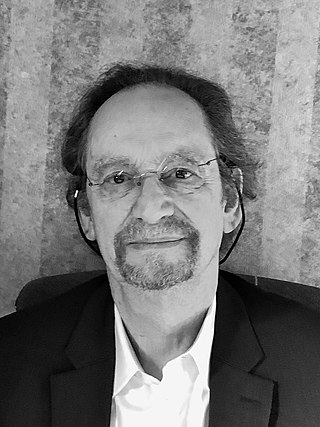Related Research Articles

Philip John Noel-Baker, Baron Noel-Baker,, born Philip John Baker, was a British politician, diplomat, academic, athlete, and renowned campaigner for disarmament. He carried the British team flag and won a silver medal for the 1500m at the 1920 Summer Olympics in Antwerp, and received the Nobel Peace Prize in 1959.
The national interest is a sovereign state's goals and ambitions, taken to be the aim of government.

Britishre-armament was a period in British history, between 1934 and 1939, when a substantial programme of re-arming the United Kingdom was undertaken. Re-armament was necessary, because defence spending had gone down from £766 million in 1919–20, to £189 million in 1921–22, to £102 million in 1932.
Robert William Dewar Boyce is a professional historian and was a Senior Lecturer in International History at the London School of Economics and Political Science (LSE). His main fields of interest are French external relations in the twentieth century, the role of economics, business and banking in modern international relations, Canadian external relations since 1900, and the modern history of international communications.

Giles Scott-Smith is Dutch-British academic. He is a professor of transnational relations and new diplomatic history at Leiden University and serves as the dean of Leiden University College The Hague.
Sir David Edgeworth Butler, was an English political scientist, with a special interest in elections.
Jeremy Black is a British historian, writer, and former professor of history at the University of Exeter. He is a senior fellow at the Center for the Study of America and the West at the Foreign Policy Research Institute in Philadelphia, US.
Archibald Haworth Brown, is a British political scientist. In 2005, he became an emeritus professor of politics at the University of Oxford and an emeritus fellow of St Antony's College, Oxford, where he served as a professor of politics and director of St Antony's Russian and East European Centre. He has written widely on Soviet and Russian politics, on communist politics more generally, on the Cold War, and on political leadership.

Michael E. Cox is a British academic and international relations scholar. He is currently Emeritus Professor of International Relations at the London School of Economics (LSE) and Director of LSE IDEAS. He also teaches for the TRIUM Global Executive MBA Program, an alliance of NYU Stern and the London School of Economics and HEC School of Management.

The Conference for the Reduction and Limitation of Armaments, generally known as the Geneva Conference or World Disarmament Conference, was an international conference of states held in Geneva, Switzerland, between February 1932 and November 1934 to accomplish disarmament in accordance with the Covenant of the League of Nations. It was attended by 61 states, most of which were members of the League of Nations, but the USSR and the United States also attended.
Martin Shaw is a British sociologist and academic. He is a research professor of international relations at the Institut Barcelona d'Estudis Internacionals, emeritus professor of international relations and politics at Sussex University and a professorial fellow in international relations and human rights at Roehampton University. He is best known for his sociological work on war, genocide and global politics.

Richard Ned Lebow is an American political scientist best known for his work in international relations, political psychology, classics and philosophy of science. He is Professor of International Political Theory at the Department of War Studies, King's College London, Honorary Fellow of Pembroke College, University of Cambridge, and James O. Freedman Presidential Professor Emeritus at Dartmouth College. Lebow also writes fiction. He has published a novel and collection of short stories and has recently finished a second novel.
Geoffrey Edwards is a British political scientist specialising in the foreign and security policies of the European Union. A fellow and a Graduate Tutor of Pembroke College, Cambridge, Geoffrey Edwards is also Reader in European Studies at the Department of Politics and International Studies, University of Cambridge and holds a Jean Monnet chair as Director of European Studies at the Jean Monnet European Centre of Excellence at the same university.
Colin Hay is Professor of Political Sciences at Sciences Po, Paris and Affiliate Professor of Political Analysis at the University of Sheffield, joint editor-in-chief of the journal Comparative European Politics. and Managing Editor of the journal New Political Economy.
The League of Nations Union (LNU) was an organization formed in October 1918 in Great Britain to promote international justice, collective security and a permanent peace between nations based upon the ideals of the League of Nations. The League of Nations was established by the Great Powers as part of the Paris Peace Treaties, the international settlement that followed the First World War. The creation of a general association of nations was the final one of President Woodrow Wilson's Fourteen Points. The LNU became the largest and most influential organisation in the British peace movement. By the mid-1920s, it had over a quarter of a million registered subscribers and its membership eventually peaked at around 407,775 in 1931. By the 1940s, after the disappointments of the international crises of the 1930s and the descent into World War II, membership fell to about 100,000.

Mary Henrietta Kaldor is a British academic, currently Professor of Global Governance at the London School of Economics, where she is also the Director of the Civil Society and Human Security Research Unit. She also teaches at the Institut Barcelona d'Estudis Internacionals (IBEI). She has been a key figure in the development of cosmopolitan democracy. She writes on globalisation, international relations and humanitarian intervention, global civil society and global governance, as well as what she calls New Wars.

Stephen Gill, FRSC is Distinguished Research Professor of Political Science at York University, Toronto, Ontario, Canada. He is known for his work in International Relations and Global Political Economy and has published, among others, Power and Resistance in the New World Order, Power, Production and Social Reproduction, Gramsci, Historical Materialism and International Relations (1993), American Hegemony and the Trilateral Commission (1990) and The Global Political Economy: Perspectives, Problems and Policies.

Roderick Arthur William Rhodes, usually cited as R. A. W. Rhodes, is a British professor of political science.

Robert Garner is a British political scientist, political theorist, and intellectual historian. He is a Professor Emeritus in the politics department at the University of Leicester, where he has worked for much of his career. Before working at Leicester, he worked at the University of Exeter and the University of Buckingham, and studied at the University of Manchester and the University of Salford.
Professor Saki Ruth Dockrill, née Saki Kimura was a Japanese-British historian of modern international affairs, and Professor at King's College London.
References
- ↑ "Dr Phillip Towle". Department of Politics and International Studies. University of Cambridge . Retrieved February 14, 2019.
- 1 2 "Dr Philip Towle". buckingham.ac.uk. University of Buckingham . Retrieved February 14, 2019.